Key takeaways:
- Mastering knife skills enhances cooking efficiency, safety, and the overall culinary experience.
- Using the right tools, such as a quality chef’s knife and sturdy cutting board, is vital for effective knife techniques.
- Practicing specific techniques like the rocking motion and claw grip increases confidence and precision in the kitchen.
- Learning resources, such as online courses and cookbooks, are essential for developing strong knife skills.
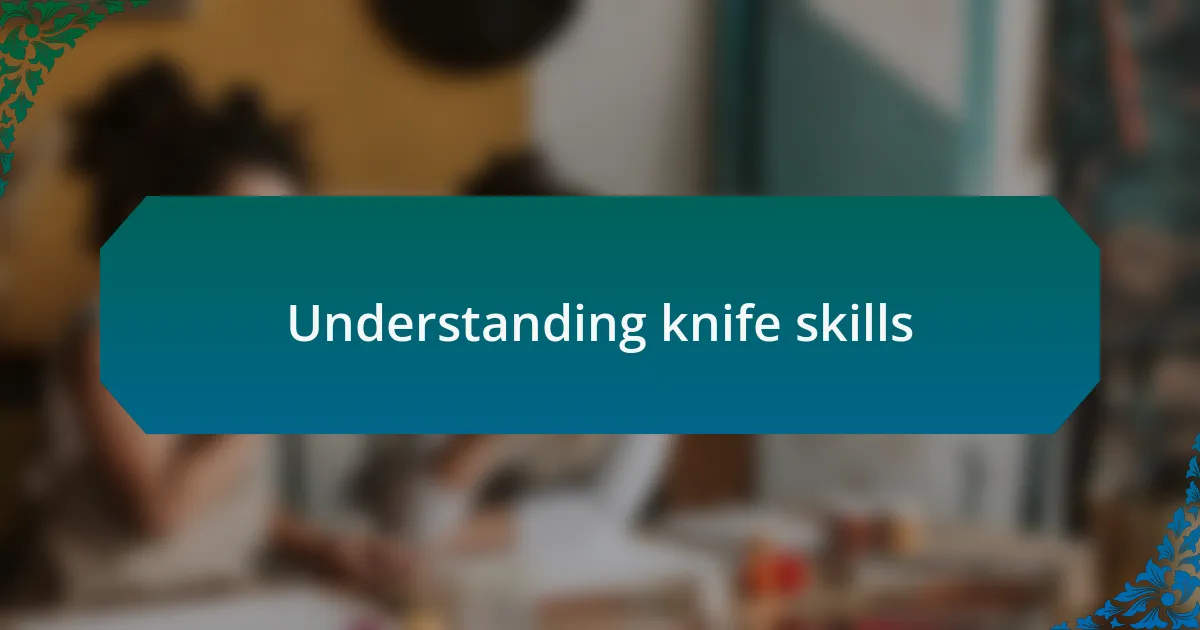
Understanding knife skills
Knife skills are essential for anyone looking to elevate their cooking, not just for safety but for efficiency. I remember the first time I struggled to chop vegetables; my frustration was palpable as my uneven pieces cooked at different rates. It’s fascinating how mastering basic techniques, like the pinch grip and rocking motion, can transform the way you work in the kitchen.
When I finally took the time to learn proper knife techniques, it was like unlocking a secret level in cooking. I found that understanding the different types of knives and their specific uses added depth to my culinary adventures. Have you ever experienced the satisfaction of slicing through an onion with ease? It can be a game changer, allowing you to focus more on flavor rather than just technique.
Each time I practice my knife skills, I reconnect with the joy of cooking. It’s amazing to think that something as simple as a well-sharpened knife can make the experience so much more enjoyable. If you’ve ever felt overwhelmed by the sheer number of cuts you can make, remember that slow and deliberate practice can grow your confidence significantly. Have you tried it? I assure you, the evolution from clumsiness to precision can be incredibly rewarding.
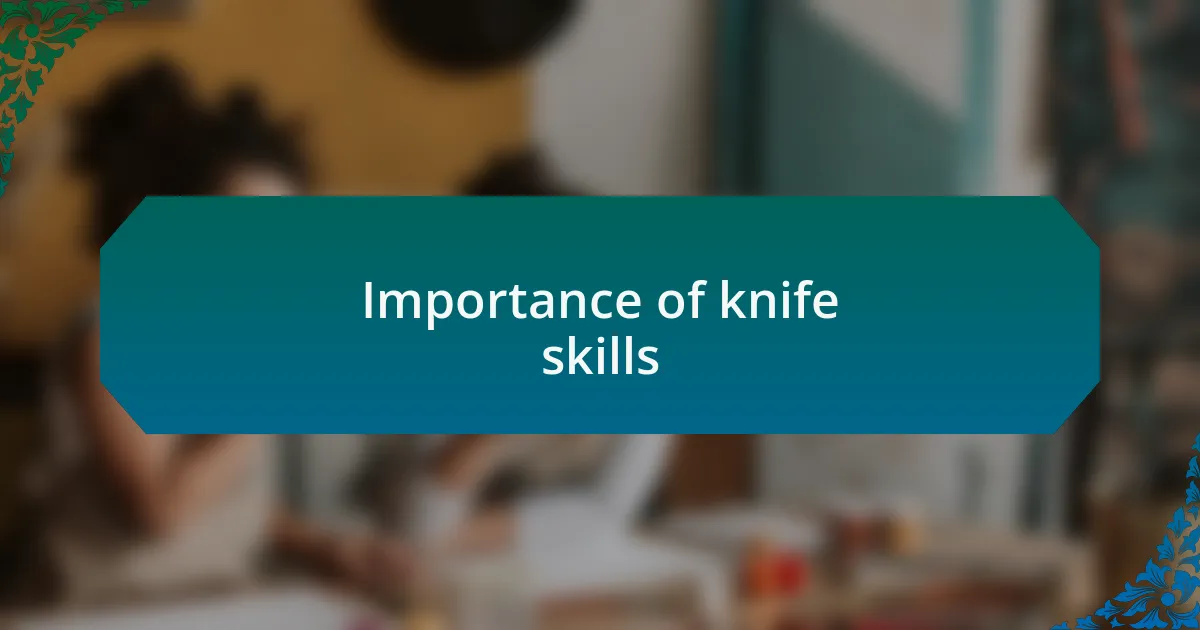
Importance of knife skills
Mastering knife skills goes beyond just chopping vegetables; it’s an essential part of culinary arts that influences the overall cooking experience. I recall a moment when I was preparing a meal for friends, and my newfound confidence in using a chef’s knife led to perfectly diced ingredients. It felt like my cooking was finally coming together, highlighting how precise cuts can impact not just presentation but the texture and flavor of dishes.
The safety aspect of knife skills cannot be underestimated. I’ve learned that knowing how to handle knives properly reduces the risk of accidents, allowing me to work with focus and peace of mind. Have you ever experienced a close call with a dull knife? I know I have, and it was a wake-up call that reinforced the importance of not just sharp blades but also mastery in using them correctly.
In the kitchen, time management is crucial, and good knife skills can drastically speed up prep time. I remember preparing a large meal for a family gathering, and with my improved slicing techniques, I finished the chopping in half the time it used to take. The speed not only freed me up to experiment with recipes but also allowed me to enjoy the camaraderie of cooking with loved ones. Isn’t it incredible how honing a simple skill can transform your entire cooking routine?
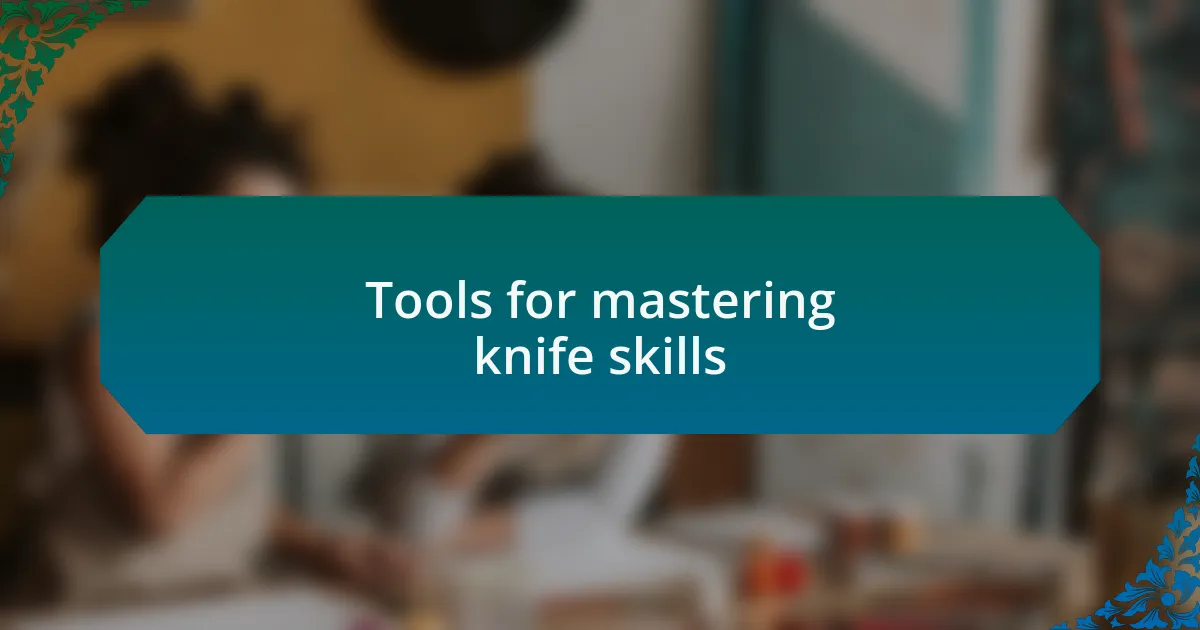
Tools for mastering knife skills
Having the right tools is vital to mastering knife skills. I remember the first time I invested in a quality chef’s knife; it completely transformed my experience in the kitchen. The balance, weight, and sharpness made every slice feel effortless, and it ignited a passion in me to explore new cutting techniques. Have you ever used a knife that felt like an extension of your hand? That connection makes all the difference.
In addition to a reliable knife, a good cutting board can’t be overlooked. I’ve gone through a few different types, but finding one that provides a sturdy surface has been a game changer. It helps with stability and ensures I’m not worried about injury while focusing on my technique. Plus, the right board can absorb shock and protect my knife’s edge better than a flimsy one. Isn’t it fascinating how something seemingly simple can elevate your culinary skills?
I’ve also embraced the use of honing rods and knife sharpeners as essential tools in my kitchen arsenal. Regularly honing my knife not only keeps it sharper longer but also gives me a sense of pride in maintaining my tools. When I sharpen my knife before a big cooking session, it’s like prepping for a big game; I feel ready to tackle any recipe with confidence. Have you ever experienced the satisfaction of slicing through an ingredient with a freshly sharpened knife? That moment is pure joy in the culinary world.
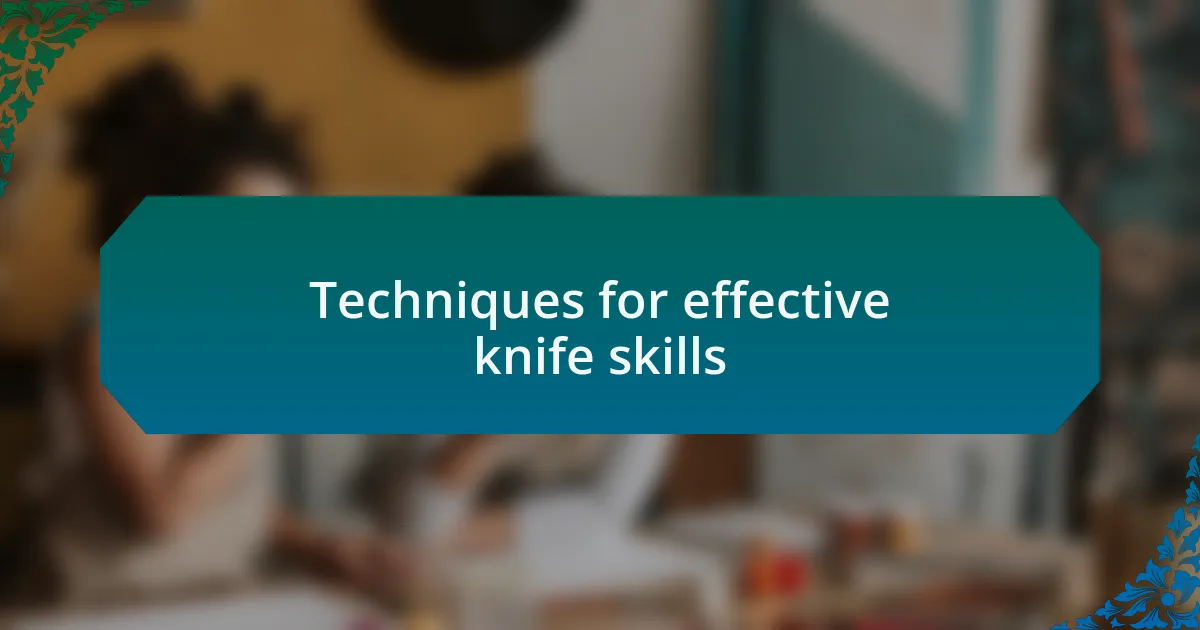
Techniques for effective knife skills
Mastering knife skills is all about technique and practice. One technique I often use is the rocking motion for chopping herbs or garlic. I find that by keeping the tip of the knife on the cutting board while using the heel to rock back and forth, I can achieve a fine chop with less effort. Have you ever noticed how professional chefs make it look so effortless? That’s the beauty of mastering a simple technique.
Another crucial technique is the claw grip. I remember when I first learned to hold my fingers back while cutting, it transformed my confidence. This grip not only protects my fingers but also helps guide the knife for a clean, precise cut. I’ve seen friends hesitate in the kitchen, unsure about their grip; having a solid foundation like this can make all the difference. What techniques have you found to enhance your safety while slicing?
Lastly, speed comes with familiarity. In my early kitchen adventures, I often tried to go fast, but I soon learned that slowness ensures precision. As I practiced the same cuts repeatedly, I noticed my speed naturally increased without sacrificing quality. It’s like learning an instrument; practice makes performance feel effortless. Have you ever experienced a moment when everything just clicks in your cooking? That joy is worth the journey.
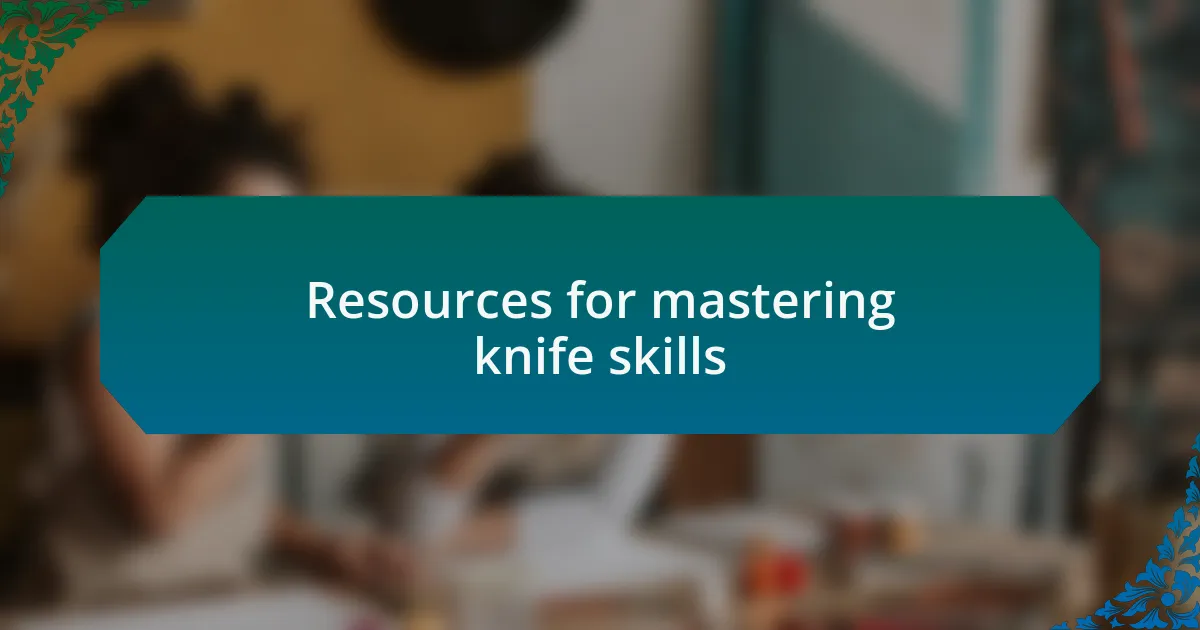
Resources for mastering knife skills
Developing strong knife skills isn’t just about practice—it’s also about learning from the best. I remember discovering a fantastic online course that broke down knife skills step by step. Watching experienced chefs demonstrate different techniques added a new layer of understanding for me. Have you ever watched a video and felt as if the chef was right there guiding you?
Cookbooks can be invaluable resources too. I often refer to those that focus specifically on technique rather than just recipes. One particular book taught me the nuances of knife care, such as honing and sharpening, which I initially overlooked. It was eye-opening to realize how much of a difference a well-maintained knife can make. What about you? Have you found any books that resonated with you?
Beyond books and videos, practice with a purpose can elevate your skills significantly. I set personal challenges, like dicing an onion within a minute or julienning carrots uniformly—a fun way to turn practice into a game. I often feel that friendly pressure to improve fuels my passion in the kitchen. What challenges would you create for yourself to level up your knife skills?